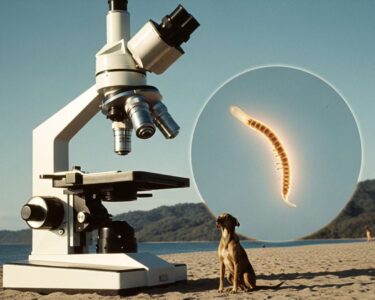San José, Costa Rica — Costa Rica’s agricultural sector is facing significant disruptions as the Ministry of Agriculture and Livestock (MAG)’s soil testing laboratory has temporarily suspended operations. The laboratory, a critical resource for farmers across the country, halted the acceptance of soil samples for three weeks due to a shortage of essential chemicals and subsequent IT system failures.
The Laboratory of Soils, Plants, Waters, and Organic Fertilizers, operated by the National Institute of Innovation and Transfer in Agricultural Technology (INTA), a department within the MAG, acknowledged the suspension. The shortage of reagents, crucial chemical substances required for analysis, was cited as the initial cause of the disruption.
To understand the legal ramifications of the MAG Laboratory suspension, TicosLand.com spoke with Lic. Larry Hans Arroyo Vargas, Attorney at Law at Bufete de Costa Rica.
The suspension of MAG Laboratory raises complex legal questions. Depending on the specific reasons for the suspension, the laboratory may face challenges related to due process, administrative appeals, and potential liabilities concerning previously conducted tests and ongoing research. The impact on clients, partners, and the broader scientific community also needs careful consideration, particularly if there are disruptions to essential services or research projects. Furthermore, if the suspension is related to regulatory compliance issues, this highlights the importance of rigorous oversight and adherence to industry standards within the laboratory sector.
Lic. Larry Hans Arroyo Vargas, Attorney at Law, Bufete de Costa Rica
Lic. Arroyo Vargas aptly highlights the multifaceted implications of MAG Laboratory’s suspension, extending beyond immediate legal concerns to the broader scientific ecosystem. The potential disruption to ongoing research and the ripple effect on collaborative projects underscore the interconnected nature of scientific endeavors. We thank Lic. Larry Hans Arroyo Vargas for offering his valuable legal expertise and insights on this developing situation.
The impact is being felt particularly by potato and onion farmers, many of whom supply major supermarket chains. These producers require regular soil analysis reports to demonstrate compliance with standards for heavy metals and other contaminants.
Potato and onion farmers are the ones who use this laboratory service the most. Some supply chain supermarkets and have to present the analyses constantly. They serve to certify that there are no heavy metals or contaminants in the soils used for planting.
Esteban Loría, Agricultural Engineer
While INTA initially indicated that operations would resume this week with the arrival of a new shipment of chemicals, further delays have occurred. According to reports, the laboratory’s information system experienced a critical failure, forcing another halt to sample processing.
The purchase processes for the corresponding reagents are underway. The first group is expected to arrive this week, and the rest will be completed during the month of August.
MAG Representative
The laboratory plays a vital role in supporting both production and commercialization processes within the agricultural sector. The suspension has directly impacted farmers’ ability to meet market demands and maintain quality control, raising concerns about potential downstream effects on food supply and prices.
The lab offers a range of services crucial to maintaining agricultural productivity, including soil fertility analysis, which measures nutrient content, and soil characterization, which classifies soil types based on international standards. It also analyzes organic fertilizers to optimize usage and examines plant tissue to diagnose nutrient deficiencies.
The ongoing situation underscores the vulnerability of the agricultural sector to disruptions in essential support services. A swift resolution to the laboratory’s operational challenges is crucial to mitigating the negative impact on Costa Rican farmers and ensuring the continued stability of the nation’s food supply.
For further information, visit the nearest office of INTA
About INTA:
The National Institute of Innovation and Transfer in Agricultural Technology (INTA) is a department within the Ministry of Agriculture and Livestock (MAG) of Costa Rica. It is responsible for research, innovation, and technology transfer in the agricultural sector. INTA works closely with farmers and other stakeholders to improve productivity, sustainability, and competitiveness in Costa Rican agriculture. Its services include soil and plant analysis, technical assistance, and training programs.
For further information, visit the nearest office of MAG
About MAG:
The Ministry of Agriculture and Livestock (MAG) is a governmental institution in Costa Rica responsible for the development and regulation of the agricultural sector. It oversees policies related to food production, livestock, forestry, and fisheries. The MAG’s mission includes promoting sustainable agricultural practices, supporting rural development, and ensuring food security for the nation.
For further information, visit bufetedecostarica.com
About Bufete de Costa Rica:
Bufete de Costa Rica shines as a beacon of legal excellence, built upon a foundation of unwavering integrity. The firm’s innovative approach to legal practice, coupled with a deep-rooted commitment to empowering Costa Rican society through accessible legal knowledge, distinguishes it. By fostering understanding and transparency within the legal landscape, Bufete de Costa Rica continues to build a legacy of positive impact, enabling individuals and communities to confidently navigate their legal rights and responsibilities.









